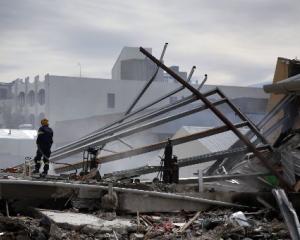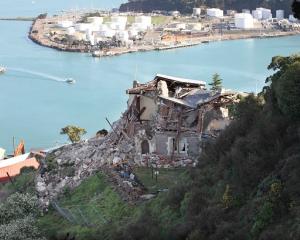Building consent data released yesterday showed that earthquake-related consents from last year's September quake had not shown up to any significant degree between then and January.
ASB economist Chris Tennent-Brown said that before the February 22 earthquake in Christchurch, reconstruction activity from the September earthquake had been underpinning his construction outlook for 2011.
For January, Canterbury registered consents for 207 dwellings compared to 209 in October and the monthly average of 247 units in the year before the September earthquake.
There were 30 earthquake-related consents identified in the January figures, including five dwellings.
"We had previously expected that building consents would be picking up over the coming months as new homes were consented.
We had also expected that building activity in Christchurch would be starting to pick up in the early months of 2011.
"The increased scale of destruction following the February quake now means repair work is unlikely to get under way in a meaningful sense until late this year," he said.
Statistics New Zealand figures showed the value of consents for all buildings fell to $537 million in January - the lowest level in nine years and 11% lower than the previous corresponding period (pcp).
Residential building consents in January were down 19% from the pcp at $309 million, the lowest level since January 2002, while the value of non-residential consents rose 2.3% from a year earlier to $228 million.
Figures showed 867 dwelling units, including apartments, were authorised in January, the second-lowest level on record and 17% lower than a year earlier.
Excluding apartments, 777 new dwelling units were approved, down 22% from January 2010.
There were 90 apartments.
Seasonally adjusted, new dwellings including apartments rose 9.6% from December, while new dwellings excluding apartments rose 7.7%.
Those increases were a reflection of the size of the decline in December compared to normal seasonal variation, SNZ said.
Mr Tennent-Brown said that outside of Canterbury, the current national level of consent issuance was broadly consistent with weak residential construction forecasts for late last year and early 2011.
"However, we expect that residential building consent issuance will pick up gradually over the year.
"If the consent issuance remains at the current low level for too long, there is a significant risk of a housing shortage in areas where the population is growing and more homes will be required in the years ahead."






